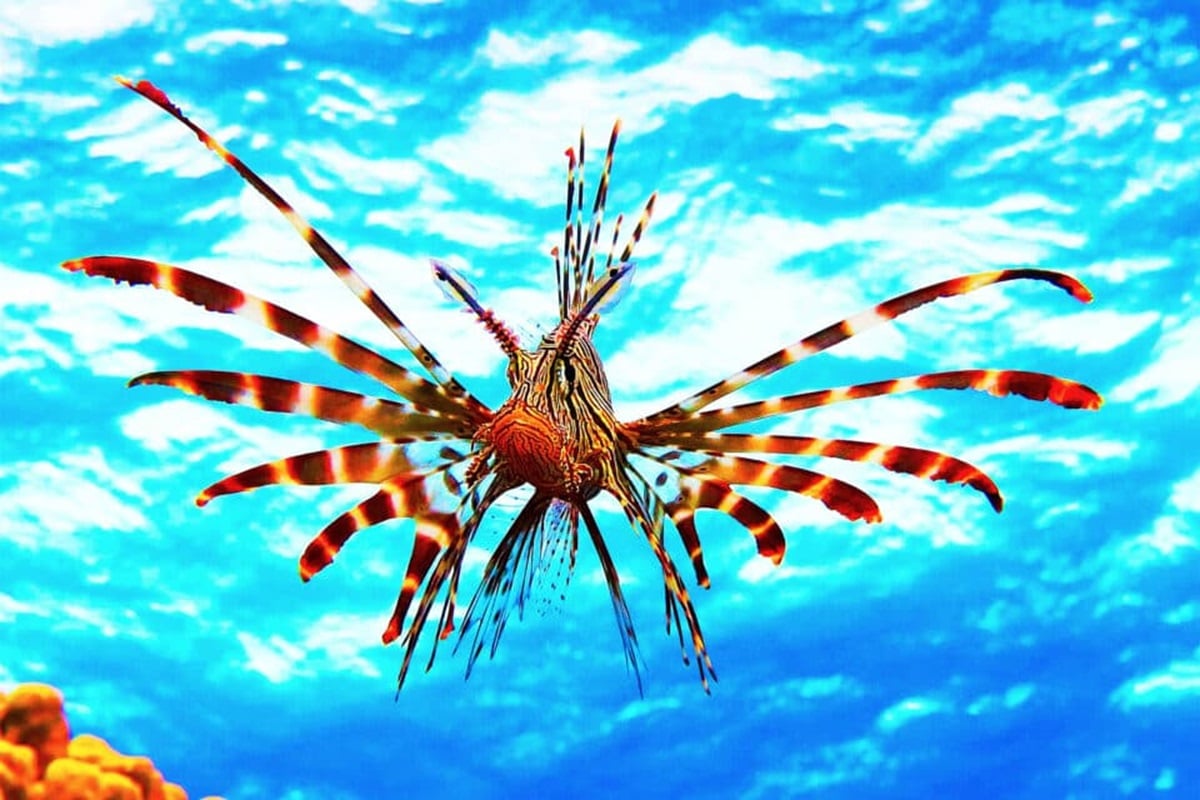Invasive lionfish are taking over oceans worldwide. The Mediterranean Sea is known for its diverse marine life which is facing a big problem and that is lionfish invasion. Lionfish are easily recognizable due to their colorful stripes and venomous spines. They are fierce predators like gobbling up small fish, crustaceans, and mollusks.

Lionfish are causing trouble in the Mediterranean and they are rapidly spreading and wreaking havoc on local ecosystems. A recent study from Wageningen University and Research shows that lionfish are expanding their territory in the Mediterranean.
Originally from the Indo-Pacific; these invaders particularly Pterois miles are now thriving in the Mediterranean. They have even made it to colder waters where they were not expected to survive. Lionfish are impressive predators like adapting quickly to new environments.
They are stealthy hunters catching native fish off guard. Their arrival spells trouble for local fish populations, upsetting the balance of marine life. Lionfish alter ecosystems by preying on native species and outcompeting other predators for food.
They are changing the Mediterranean’s delicate food web and threatening its biodiversity. Genetic studies reveal that lionfish in the Mediterranean likely came from the Red Sea through the Suez Canal. This highlights the importance of regulating the movement of species to prevent invasions.
We need more research to understand how lionfish interact with Mediterranean ecosystems. Citizen science initiatives play a vital role in tracking lionfish sightings and gathering data. Collaboration among scientists, policymakers, and communities is crucial to tackling the lionfish invasion.
By working together we can develop strategies to control lionfish populations and protect marine biodiversity. It is up to us to safeguard the future of the Mediterranean and its marine life from these invasive predators.
Leave a Reply